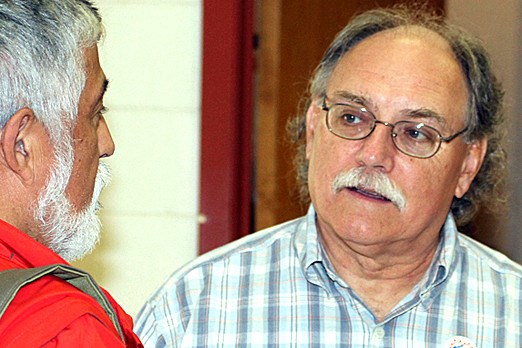It’s not a happy day for transit riders in Toronto and workers at the local Bombardier plant, said a local union official.
Toronto Mayor Rob Ford and Ontario premier Dalton McGuinty announced Thursday a $12.4 billion Toronto Transit Commission deal to replace the Transit City project, which entailed installing light rail lines all over Toronto and would have had Thunder Bay’s Bombardier plant producing potentially 368 light rail vehicles.
The new plan would see a new underground subway line and the Transit City light rail tracks scaled back from 52 kilometres to 25 kilometres, leaving only 130 of the 185 light rail vehicles already ordered from Bombardier still needed.
“The decision will result in the elimination of one entire light rail line in Toronto; that means fewer vehicles will be built in Thunder Bay,” said Paul Pugh, president of CAW Local 1075.
The move won’t have an immediate impact on the Thunder Bay plant, said Pugh, adding the contract for 204 light rail vehicles to replace the TTC’s existing stock is still secure.
Putting the project underground means most of the money will go toward building tunnels with less leftover to build vehicles, he added.
“That’s why transit authorities all over the world are going to light rail – you get more transit for dollars,” he said. “It’s about three times more effective…Toronto is getting one third the vehicles it would have.”
The City of Toronto will now be responsible for $49 million for cancelling the Transit City project.
Metrolinx CEO Bruce McQuaig told national media earlier on Thursday that figure could rise, and the city would also have to pay for any penalties incurred for breaking or altering contracts secured in the initial plan.
The real losers in this new transit plan are the TTC users, said Pugh, adding they’ll have to wait up to a decade for the underground line to be ready when a light rail system could be up and running in about four years.
“I’m confident things will work out for this plant in the long run because I have confidence in the people of Toronto,” he said. “What happened today is unfortunate.”
Sign in or register
- Messages
- Post a Listing
- Your Listings
- Your Profile
- Your Subscriptions
- Your Likes
- Your Business
- Support Local News
- Payment History
Registered Users
Already have an account?
New Users
Create a free account.
